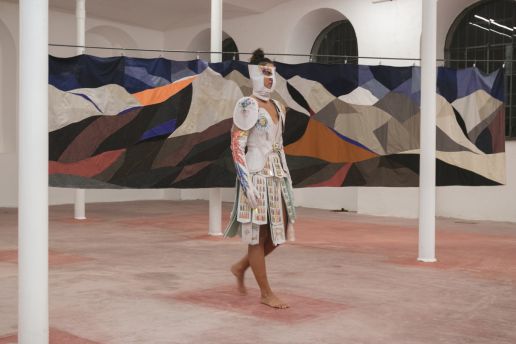Circularity
LOOPER Textile Co. – A second life for unwanted garments
Looper Textile Co. is an independent company jointly owned by the H&M Group and REMONDIS. They provide retailers and municipalities with responsible solutions to extend the useful life of garments and textiles through re-use and recycling. At Munich Fabric Start, we are excited to welcome Looper Textile Co. as one of the key players at the upcoming KEYHOUSE during the next show on January 21 + 22, 2025 in Munich. Learn more about Looper Textile Co.‘s mission to give unwanted garments a second life and how they contribute to increasing the likelihood that each garment meets its intended end state. Here’s how:
When it comes to unwanted garments, the challenges we face today are pretty overwhelming. Each year, an estimated 100 – 150 billion items of clothing are produced globally.
- The majority of these textiles are unfortunately fated to go to waste, contributing to resource depletion and environmental damage.
- Globally, around 87% of discarded textiles directly end up in wrongful disposal, while more than 90% are reusable and recyclable.
- Today, less than 1% of used clothes and other textile materials are recycled into new textile products. At Looper Textile Co., they keep textiles out of wrongful disposal and provide solutions to extend the life of garments that are reusable. For those that can’t be reused, they ensure that the materials are recycled at their highest value.

At Looper Textile Co., they keep textiles out of wrongful disposal and provide solutions to extend the life of garments that are reusable. For those that can’t be reused, they ensure that the materials are recycled back into the loop at their highest value.
They collect and sort garments to extend their useful life:
Collect: They collect used and unwanted garments from retailers (including leftovers, customer returns, stop orders, faulty items, and post-consumer garments collected in stores or via post). They also collect post-consumer textiles in communities (street collection), via charity shops, and directly from consumers.
Re-use: They extend the useful life of products (garments, shoes, accessories) through responsible reuse. The majority of garments they collect are eligible for reuse. At Looper Textile Co., facilities, they sort pieces by piece into more than 200 categories so they can meet customer needs and ensure that garments will have the best possible new life.
Recycle: They have developed an industry-leading near-infrared (NIR) sorting line equipped with optical sensors, enabling them to detect material composition and color and thereby meet the requirements of closed-loop recyclers. For textiles where closed-loop recycling is not an option yet yet (currently the majority), they supply to open-loop recycling solutions (wiping cloths, nonwovens for insulation, and automotive).
Recovery: A small remainder of garments that are contaminated or ineligible for reuse or recycling are disposed of in established waste facilities, prioritizing energy recovery whenever possible.
„By investing in advanced sorting technologies, Looper Textile Co. is positioning itself as a key feedstock supplier for scalable textile-to-textile recycling solutions.” – Hélène Smits, Head of Business Development & Partnerships
Looper Textile Co. is a trusted partner in preparing garments for the next phase of their lifecycle. The bold ambition and strong heritage of this young company lies in understanding the retailer’s perspective and best-in-class operations. They are:
SOLUTIONS ORIENTED:
They meet you where you are: They provide custom solutions depending on the starting point and ambition level of the brand or retailer. This may range from securing responsible handling of unwanted garments to capturing post-consumer fibers to be introduced back into brand supply chains.
Circular supply chains: They actively support closed-loop trials to kick-start the flow of secondary raw materials into your supply chains.
Global turn key solutions: They operate three facilities in Europe, and through their global partner network, they are able to provide our solutions across all global markets. Their partners uphold their standards and share their commitment to giving unwanted garments a second life in a reliable and transparent way.
OPEN & TRANSPARENT:
Monthly Reports: They provide end-to-end visibility of what happens to the textiles from collection to sales markets in clear and engaging monthly reports.
Authenticity: They are straightforward about the challenges and opportunities they see, as well as their approach to each.
Customer Engagement: They can help you create a compelling narrative for your customers and answer any questions they might have.


INVESTED IN PROGRESS:
Automated Sorting for Circularity: They continue to invest in improving and scaling their automated sorting capabilities in order to supply textile feedstock to closed-loop recyclers with the right specifications. They are taking part in several trials and commercial pilots with fiber recyclers and manufacturers that bring recycled textile materials back into new products.
Responsible Re-Use: They are pushing for enhanced visibility practices within their sector via deep dives into reuse sales markets and transparent reporting. Their leadership in these areas contributes to more secure sales channels and increases the likelihood that each garment meets its intended end state. They are also involved in piloting solutions for end-of-life textiles in one of their main re-use markets in order to tackle the textile waste problem that is present there.
BEYOND COMPLIANCE:
With the introduction of the EU’s Extended Producer Responsibility (EPR) schemes for textiles and the Eco-design for Sustainable Products Regulation (ESPR), brands and retailers face increasing pressure to take responsibility for their products throughout their lifecycle, from design to production to end-of-life. Additionally, sustainability-conscious consumers are demanding transparency and ethical practices, pushing brands to adopt circular business models.
Whether you are focused solely on compliance, regard circularity as a key strategic advantage for your business, or anything in between, they can help!
Looper Textile Co.’s solutions are in accordance with ESPR, EPR, and other relevant legislation, and they ensure that you not only meet your producer requirements but also help you achieve your sustainable ambitions.



Visit them at the KEYHOUSE to discover the possibilites for your own brand. Don’t miss them on the KEYHOUSE stage with valuable insights.
THIS MIGHT BE ALSO INTERESTING FOR YOU
The Power of Data: Understanding How Data Tackles Challenges in the Textile Industry
31. January 2025
Data might feel intimidating for the fashion and textile industry, but it holds the power to unlock transparency, boost efficiency, and spark innovation...
MUNICH FABRIC START & BLUEZONE – Essence of Innovative Design & Smart Strategies in Challenging Times
24. January 2025
FLORESCENCE describes the phase in which plants reach their full bloom and is used as a general metaphor for the process of blossoming.
Additionals Trends Spring.Summer 26 – Part 8
20. January 2025
Trims and packaging are branding items we shouldn’t take for granted – they are a signature that transforms the ordinary into the unforgettable.
SPRING.SUMMER 26 FABRIC HIGHLIGHTS & MATERIAL NOVELTIES – PART V
19. January 2025
Their philosophy,“Drawing art with threads, conveying emotions through embroidery,” ensures every product is not just visually stunning but also deeply meaningful.
The Source Collection’s News at MUNICH FABRIC START
19. January 2025
Neutral sand mélange and off-white jacquards set a sophisticated tone, while soft yarn jersey pieces bring effortless comfort.
Additionals Trends Spring.Summer 26 – Part 7
18. January 2025
Whether haptic or visual - it's all about contrasts, which in combination provide impulses and demand new ways of thinking. Perfect for brands that want to make bold statements!
Kantamanto Social Club
17. January 2025
The mission of Kantamanto Social Club is clear: to empower communities in the Global South. It aims to shine a spotlight on communities, particularly those whose circular and regenerative practices have been undervalued for too long.
Curiosity, Courage and Craftmanship
17. January 2025
The projects I selected this season challenge us to rethink everything from raw materials to end products and production processes, whilst emphasising on sustainability as an ongoing dialogue.
Cartoon – Fashion for courage, joie de vivre and self-realisation
16. January 2025
Welcome to Cartoon - your invitation to a life full of courage, joie de vivre and self-realisation!
The Source Collection’s News: EAST
16. January 2025
Fashion is not only about following trends, but also about expressing your creativity and personality.
Ask The Experts
Taking into account the focus on sustainability and innovation driven by THRIVABILITY, a new information concept has been integrated into the Trend Forum at the MUNICH FABRIC START Spring.Summer 21. At various communication islands in the foyer of the MOC, industry experts have provided impulses and answers to current questions, from the origins of the material to exploring the diverse range of production processes and end garment recycling.
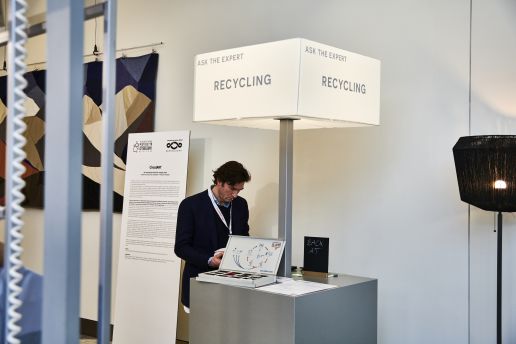
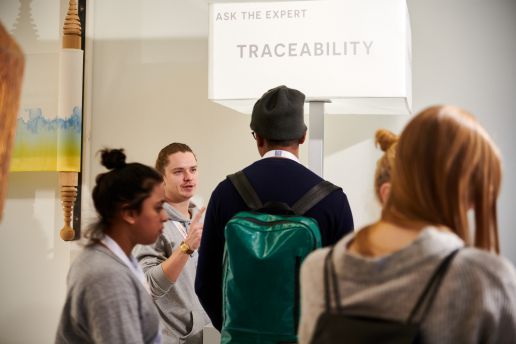
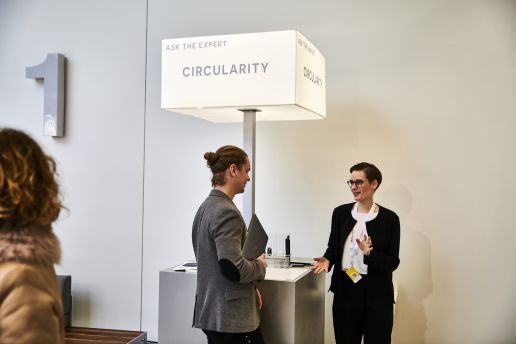
Through direct discussions, visitors gained valuable know-how, insights into topics and current solutions for both sustainable and innovative processes along the value chain:
CIRCULARITY // FIBERS & MATERIALS // MARKETING & COMMUNICATION
RECYCLING // RESPONSIBLE PROCESSING // SOCIAL RESPONSIBILITY // TRACEABILITY
We would like to thank all experts who shared their knowledge and experience with the visitors during the three days of the MUNICH FABRIC START:
CIRCULARITY
Ina Budde | Circular.Fashion
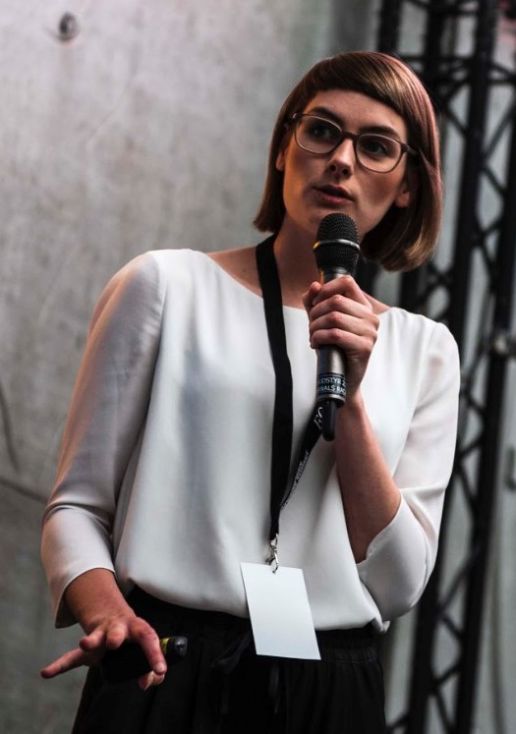
The future thinking designer Ina Budde (MA Sustainability in Fashion) is lecturer, entrepreneur and co-founded circular.fashion. Since 2013 she is working with circularity in fashion and textiles and in 2017, she founded the sustainable change agency circular.fashion together with the business developer Mario Malzacher. Additional to her work with circular.fashion, where she consults fashion brands such as HUGO BOSS and H&M, she gave workshops and lectures for sustainable design at several international universities such as RMIT Melbourne, KEA Copenhagen, RCA London, HAW Hamburg, ESMOD and AMD Berlin. Ina Budde is founding member of the global Open Source Circular Economy association and co-initiated in this frame the first Circular Textile Challenge Berlin. Her work was selected as sustainable innovator 2014 by LAUNCH Nordic and received the NEXT ECONOMY AWARD 2015 and the Global Change Award by the H&M Foundation 2019.
circular.fashion is a sustainable change agency creating product- and system innovation for a circular economy in fashion and textiles. The Circular Design Software supports fashion brands to design circular and sustainable products in a lean and efficient process, with the access to an extensive material database. With the circular.fashion system powered by the circularity.ID, a scannable label in the garment, all actors within the value chain are interconnected by giving each garment an identification, making sure that every step of a garment’s life cycle positively influences circular systems of fashion – so that the products of today become the resources of tomorrow. This system has been selected as one of the sustainable innovations 2014 by LAUNCH Nordic and received the NEXT ECONOMY AWARD 2015. Collections developed with the Circular Design Software received the lavera Green Fashion award 2015 and the Bundespreis Ecodesign Award 2017.

EXPERT INSIGHTS ON:
> Circular Materials: Identify recycling opportunities for your textiles and products
> Design for Longevity and Cyclability: Create products of endless value
> circularity.ID Open Data Standard: Leveraging data and technology for circularity
> Recycling partner network: Enable a reverse supply chain for fibre-to-fibre recycling
> Full Cycle product journey: Capture the products value through recommerce & recycling
Contact: info@circular.fashion
FIBRES & MATERIALS
Thomas Stegmaier | DiTF
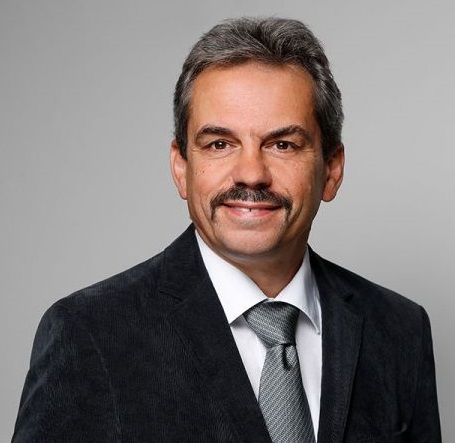
Thomas Stegmaier is Development Manager in research at the DITF (Deutsches Institut für Textil- und Faserforschung Denkendorf). After studying Textile Machine Construction and Control Technology of Machine Tools, he received his doctorate in Process Engineering at Stuttgart University. He then received his postdoctoral lecture qualification in Construction Engineering at Institute for Technology Karlsruhe. Since 20 years now, he works as Development Manager for technical textiles, surface technology, environmental technologies, bionics at DITF.
The DITF (Deutsches Institut für Textil- und Faserforschung Denkendorf) forms the largest textile research centre in Europe with more than 300 scientific and technical staff. As the world’s only textile research facility and covering an area of more than 25,000 m², the DITF work right across the textile production and value chains. Since 1921, they have been across all the major fields within textiles. They are among the leading research institutions worldwide.
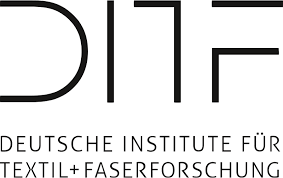
EXPERT INSIGHTS ON:
> What does organic really mean for textiles?
> Limitations of natural fibres
> Ways of recycling textiles
> Composites: Pitfalls for recycling
Contact: info@ditf.de
MARKETING & COMMUNICATION
Alex Vogt | KERN. Consulting
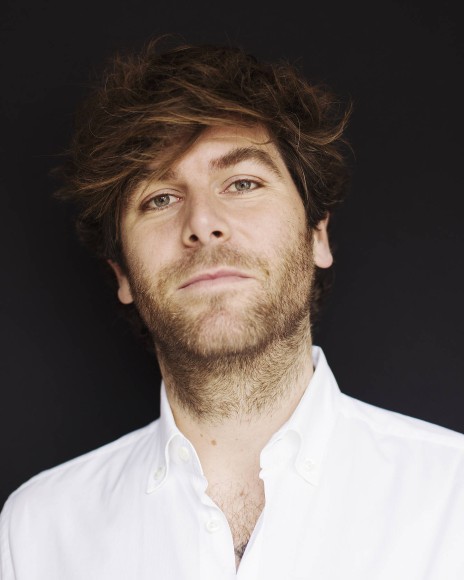
Communications and strategy consultant Alex Vogt sees the complex of innovation management and corporate responsibility as an essential prerequisite of future-orientated business thinking. He initially studied politics and history at the Goethe University Frankfurt and then came into contact with the sportswear and fashion industry through the surf and skateboard scene, going on to gain an MBA specialising in the textile industry at the private LDT Nagold Academy for Fashion Management. Before joining the communications consultancy KERN as a partner and devoting his full attention to the topics of innovation and CR, Alex Vogt held senior positions in fashion retail and marketing.
KERN. designs individual solutions to communicate forward-thinking business content. Go with the flow, let your mind wander and immerse yourself in a new world… KERN. is a strategy and communications consultancy with a focus on innovation and corporate responsibility. KERN. supports companies in the development and implementation of strategies, as well as working as communications consultants and journalists and creating complete graphic design packages. Its clients include companies from the retail and manufacturing sectors, associations and trade shows.

EXPERT INSIGHTS ON:
> Hot Spot- / Impact Analysis; Distinction
> Corporate Responsibility Language
> Moderation of Stakeholder Dialogue (B2B)
> Sustainability Reporting (Text, Layout, Production)
> Communication Concepts & Implementation (internal & external)
> Marketing, Campaigns & PR (B2C)
Contact: hello@kern.consulting
RECYCLING
Paul Doertenbach | I:CO
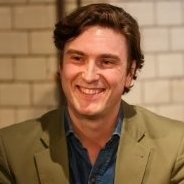
Paul Doertenbach is Head of Marketing and Sales at I:Collect GmbH, the parent company of I:CO. He joined the company 9 years ago after completing a bachelor at Munich Business School, and a MBA at University of Buckingham.
Restorative and regenerative by design, a circular economy industry approach can lead to positive change. Pre-loved clothing and shoes would circulate in closed product and material cycles and be used continuously in the manufacturing of new products. At I:CO, we are committed to this vision. Our innovative take-back system is helping make it a reality and is used successfully by many companies around the world today.

EXPERT INSIGHTS ON:
> Textile Recycling Today and Tomorrow
> End of Life Procedures
> Change Process
> Fibre 2 Fibre
> Closed Loop / Open Loop Recycling
Contact: info@ico-spirit.com
RESPONSIBLE PROCESSING
Tobias Glatt & Fabian Walda | bluesign® ACADEMY
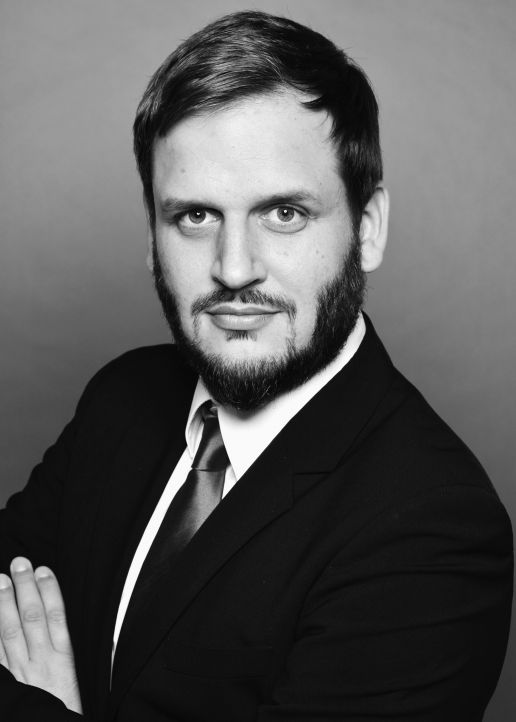
Tobias Glatt is Geographer, Auditor Integrated Management Systems and Energy Management Systems. He works for bluesign since 2009 in different roles and conducted more than 60 audits around the globe with focus on Environment, Health & Safety in textiles and accessories companies. Besides, he follows several sustainability projects, e.g. carbon footprinting, water footprinting and recycling.
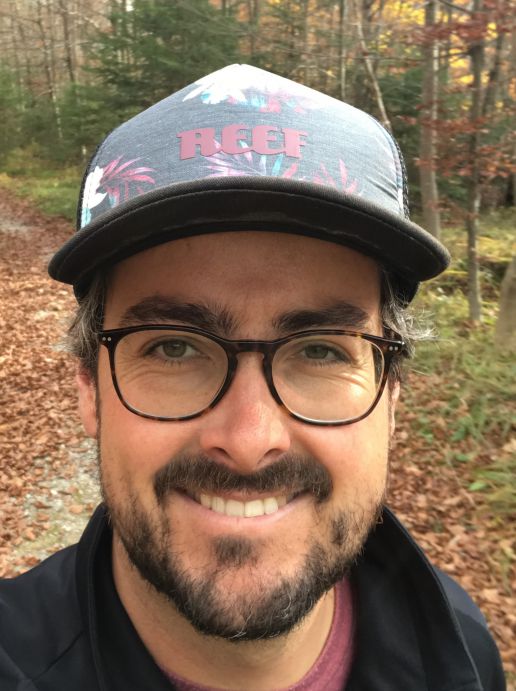
Fabian Walda is Dipl. Ing. In Textile and Clothing Technologies. Since 8 years, he is active at bluesign in technical orientated fields such as audits, international audit supervision and field trainings and lastly R&D projects around sustainable manufacturing.
At the bluesign® ACADEMY, we generate and disseminate knowledge on various EHS and sustainability topics in relation to textile and chemicals industry. This unique knowledge is the basis for improving and expanding the bluesign® SYSTEM as well as our services to stakeholders and the community: Training and lectures, support and customized solutions, consultancy, studies and projects as well as further development of the bluesign® CRITERIA and substance restrictions.

EXPERT INSIGHTS ON:
> Chemicals Management
> Resources, Consumer Safety
> Best Available Techniques and/or Environmental Friendly Processes
> Occupational Health & Safety
SOCIAL RESPONSIBILITY
Mark Starmanns | BSD Consulting
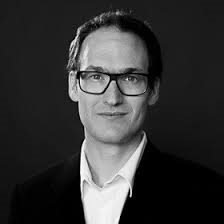
Mark Starmanns works as senior consultant at BSD Consulting Switzerland. His specialist areas are sustainable strategy, sustainable supply chain management, sustainability standards and living wages. He has been working on the topic of fair fashion in research and practice for more than 15 years. Besides working as Sustainability Consultant at BSD Consulting, he received a PhD on corporate responsibility in global clothing supply chains and is the co-founder of the fair fashion information platform GET CHANGED!
BSD Consulting – business. sustainability. development – founded in Switzerland in 1998, we are an international network of consultancy firms providing knowledge and solutions for sustainable development. BSD is now part of ELEVATE, the leading business risk and sustainability solutions provider.
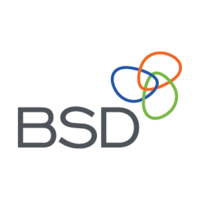
EXPERT INSIGHTS ON:
> Do I need a social Code of Conduct?
> Which social standard is the right one for me?
> Is it enough to outsource monitoring of my social standards?
> I produce in Europe – do I need to care for social standards?
> How do I implement living wages?
> How do I do a human rights risk assessment?
TRACEABILITY
Philipp Mayer | retraced
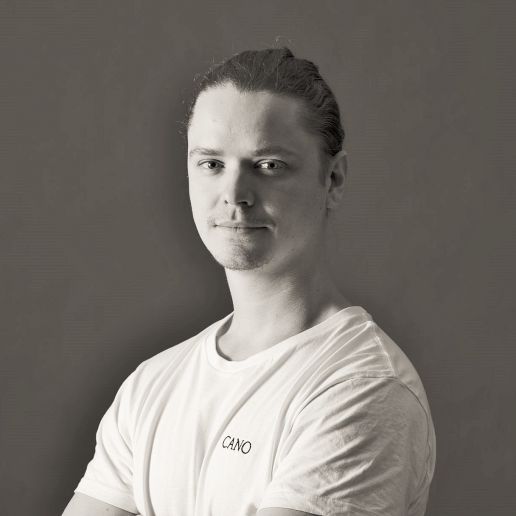
Philipp Mayer is the Co-Founder of retraced and the footwear brand CANO. He lives the entrepreneurial spirit: Directly after graduating from Fontys International Business School in Venlo, the Netherlands, he co-founded the CANO Clothing Company in 2016 and two years later the transparency platform retraced.
Little is known about how our favourite clothing items are made, under what labour conditions, which raw materials are used, and how the process is affecting our planet. End-consumers across the globe are starting to demand reliable, verified supply chain information in order to make educated choices about the products they consume. Retraced is a blockchain-powered transparency platform that allows brands to unlock relevant supply chain information and share their verified efforts in sustainability and ethics with their consumers.

EXPERT INSIGHTS ON:
> Supply Chain Transparency
> Blockchain Verification
> Sustainability
> Consumer Trust
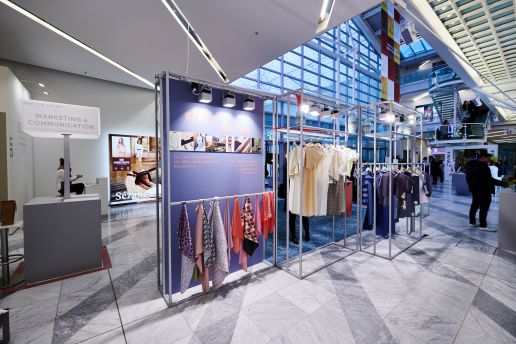
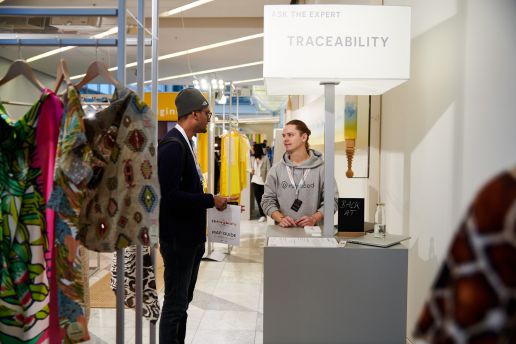
CirculART – A Holistic Approach to Sustainability
The project CirculART is the result of 10 months of cooperative work by a group of companies that can be defined as representatives of the sustainable textile production chain, from yarns to the final product and accessories.
Those organizations have chosen to embrace the idea of sustainability and decided to evolve their businesses in an innovative and far-sighted way. Four invited artists have metaphorically inserted themselves between the warp and weft of the life cycle of clothing and turned themselves into an intersection point through which the public can observe the textile production processes, creating different attitudes towards the products we buy.
The aim of the project is to bring artistic research to question the different processes constituting the textile production chain.
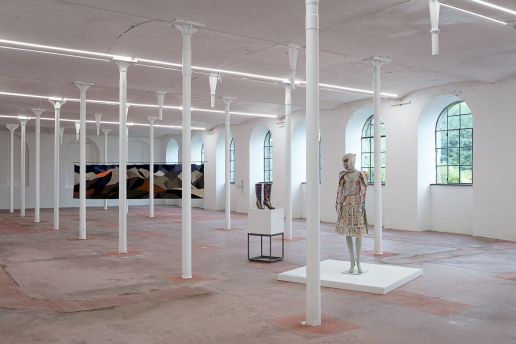
We believe that the artworks which emerged from this project could have an interesting different point of view on sustainability in the textile industry: the artworks should be seen as a way to start a conversation about the relation between production and its various impacts – on the landscape and “local” communities, natural resources, production and labour in the global and local market, the usage of raw materials and the item of clothing in its symbolic value.
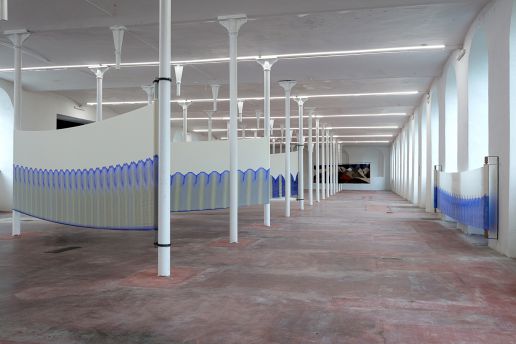

In the development of the artistic project, the four artists have investigated in depth the textile production processes, not focusing on a single phase but considering the meaning of sustainability in the whole textile supply chain: Starting from the use or reuse of raw materials like wool, wood, cotton, used garments and production leftovers to garment finishing and the production of accessories like labels and zips. They have engaged with people who – for each company involved – explained in detail the production operations, the use of natural resources like water, woods and pastures as well as the relationship between production and globalisation. The project is inspired by the idea of circularity, being a basis for discussion about the textile and fashion production. With the intention of making the importance of the supply chain visible – through the artistic thought – but also to question the role of the consumer.
Companies: Brugnoli Giovanni S.p.A., Filatura Astro S.r.l., Lampo – Giovanni Lanfranchi S.p.A., Lanificio F.lli Cerruti, Lenzing Group, Officina +39, Ribbontex S.r.l., RGT Ready Garment Technology Italia, Tessuti di Sondrio.
Artists: Laura Harrington (UK), Silvia Giovanardi (IT), Juan Manuel Gomez (COL), Emanuele Marullo (IT)
Curated and produced by Cittadellarte – Fondazione Pistoletto (Biella – IT)
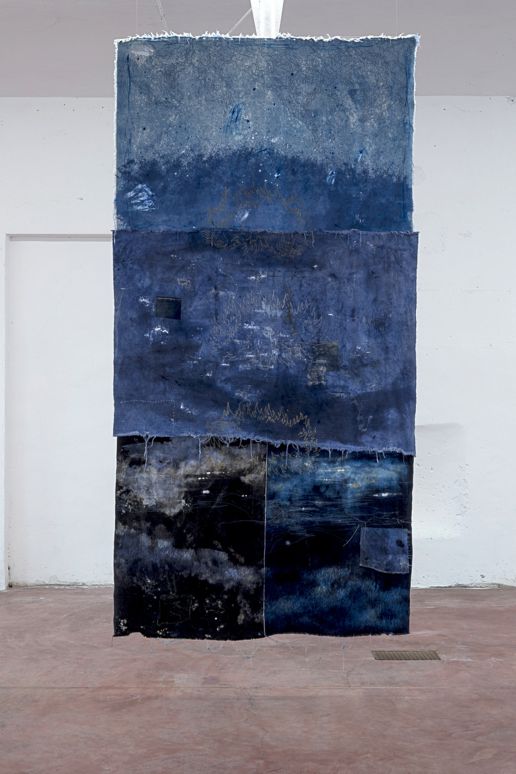
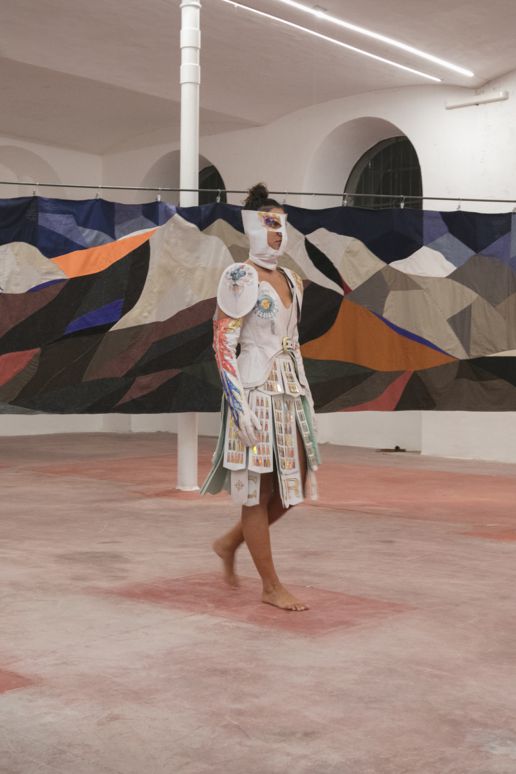
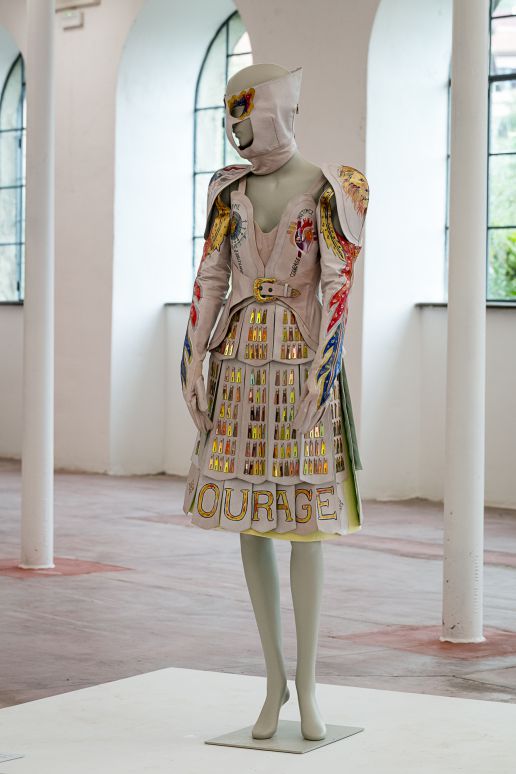
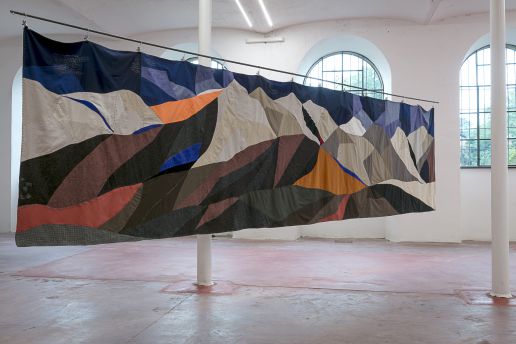
Further information about the upcoming shows for 2020 can be found here.
VIEW PREMIUM SELECTION: 14. – 15. July 2020
MUNICH FABRIC START: 1. – 3. September 2020
BLUEZONE: 1. – 2. September 2020













